News
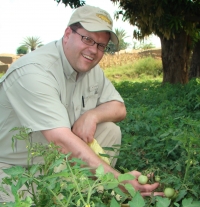
12/05/2022
Microbes are all around us. Many are beneficial and have been harnessed to transform fruits, vegetables and grains into food and beverages we enjoy like bread, injera, beer, wine, kimchi and chocolate. On the other hand, other microorganisms - including viruses, bacteria and fungi - can cause infections and diseases in humans, animals and plants, too.
The health of plants, animals, people and the environment are all inextricably interconnected - a concept known as “One Health”. A prime example of One Health principles is that when plants become infected with microorganisms, they can become sick, not grow as well and thereby...

29/04/2022
Earlier this week, the secretariats of the Joint Expert Meeting on Microbiological Risk Assessment (JEMRA) from both FAO and WHO met at FAO in Rome to discuss ongoing and future work. This is the first time that the secretariats from both organizations met physically since 2020 due to the safety measures of the pandemic.
The JEMRA team from FAO and WHO has been very efficient and productive since 2020. They convened four JEMRA and three ad hoc expert meetings virtually, published six technical reports, eight summary reports, one peer review paper and a brochure and infographic in six official UN languages.
However,...

28/04/2022
Two years later, as we faced the published report, many of us remembered that distant day when we opened a link to see the call to work on food allergens from FAO and WHO.
FAO Food Safety Officer Kang Zhou reflects on the adventure leading up to the compilation of such an international scientific report, likening the style to that of a literary masterpiece by Gabriel García Márquez. Starting from the recollection, or memory, in this case of the call for experts and the call for data. Some work can be done individually, but other work needs people from different regions,...
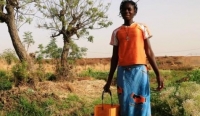
26/04/2022
The Standards and Trade Development Facility (STDF) will host a “climate change week” in the way of four webinars on 3 to 6 May 2022 to explore the impact of climate change on the global food system. The four inter-connected webinars will bring together representatives of STDF partners and stakeholders to discuss the challenges of climate change for food safety, animal and plant health, and identify opportunities to respond to emerging risks and facilitate safe trade.
The topics are:
Climate Change and Animal Health 3 May 2022, 14:00 – 15:00 (CEST)
Climate Change and Plant Health 4 May 2022, 14:00 –...
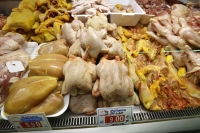
19/04/2022
For the attention of Food Safety Authorities, Poultry Processors and Academia: we need your data on the Control of Salmonella and Campylobacter in poultry meat. Further to a recent call for scientific experts to participate in an upcoming Joint FAO/WHO Expert Meeting on Microbiological Risk Assessment (JEMRA) on the control of Salmonella and Campylobacter in poultry meat, the JEMRA is also seeking data to support this new work.
More specifically, governments, the food industry, academia, consumer groups, laboratories, health care providers and any other interested organizations and individuals are being asked to submit any available data on the following:
Information...
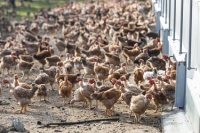
15/04/2022
As we continueto read daily reports of outbreaks and product recalls due to Salmonella, it comes as no surprise that foodborne Salmonella causes more than 78 million illnesses and over 59
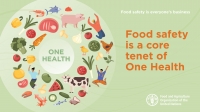
06/04/2022
A session on Zoom, hosted by FAO, the World Organisation for Animal Health (OIE), United Nations Environment Programme (UNEP), World Health Organization (WHO), addressed ‘enhancing food safety through a One Health approach’ on 6 April 2022. Markus Lipp, FAO Senior Food Safety Officer, delivered closing remarks at the 1.5 hour discussion that was part of the FAO in Geneva One Health Dialogue Series.
“Life is complicated, food safety is complicated and One Health is even more complicated,” Lipp said, noting the importance of working together to overcome resource problems, share knowledge and reap the benefits of national and international collaboration. After...
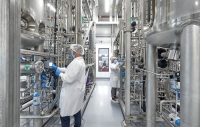
05/04/2022
Cell-based food production methodologies have been well characterized, meaning they are now ready to move from laboratories to production facilities. The world saw its first cell-based beef burger in 2013 and chicken nuggets in 2020. There are now more than 75 start-ups developing various cell-based products around the world. The array of products and commodities is fast expanding to include various types of meat, poultry, fish, aquatic products, dairy and eggs.
The idea is to cultivate animal cells in vitro and then process them while minimizing animal slaughtering. The safety of such products may come to the minds of consumers as...
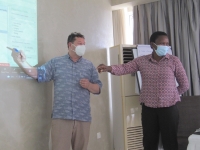
01/04/2022
A skilled workforce of food safety professionals familiar with the challenges, opportunities and regulatory frameworks of a country are essential to improve food safety, increase domestic and international trade opportunities and enhance the health of the population. This need is especially critical in low and middle-income countries where foodborne diseases have a high social and economic cost. For example, it is estimated that over 137 000 people in Africa die each year from preventable foodborne illnesses.
“Many context-specific factors can either limit or enable the implementation of specific practices and actions that impact food safety. It is therefore critical that, when...
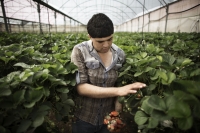
29/03/2022
After the recent FAO publication Thinking about the future of food safety – A foresight report was released we caught up with two of the authors, Vittorio Fattori, FAO Food Safety Officer, and Keya Mukherjee, FAO Food Safety Specialist, to hear their thoughts about the document. Fattori also recorded a video, providing an overview of foresight and some of the issues covered by the publication. (Watch the video here: Using foresight in food safety)
Our first questions were for Vittorio Fattori:
Foresight is in the news, but what is foresight? And why is it important in food safety?
It is important...
Stay up to date and connect to our RSS feed!
